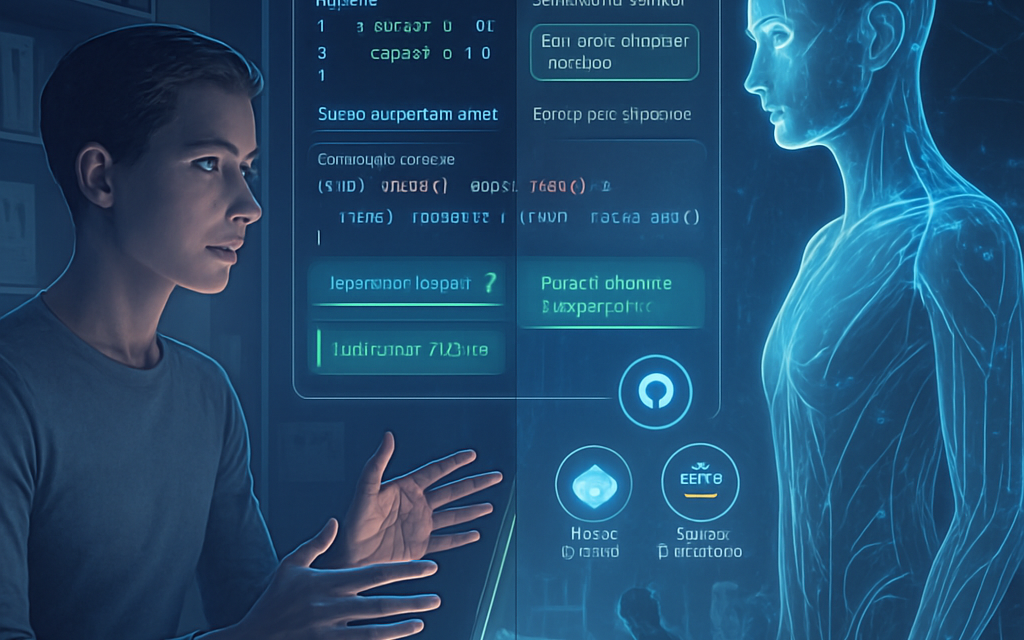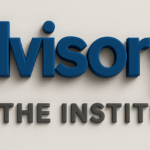Redefining the Role of Human Coders in the Era of Autonomous Software Development
Abstract
As artificial intelligence (AI) evolves from a mere tool into a co-creator in software development, it reshapes the landscape of coding, ethics, and human roles. This article explores how developers and enterprises must adapt to maximize innovation, ensure transparency, and retain strategic oversight. It offers real-world case studies, skill-shift insights, and a call to proactively balance AI capability with ethical, human-centered engineering.
The rapid evolution of artificial intelligence (AI) from a helpful tool to a co-creator in the software development process creates several questions for companies to answer as they seek to move forward. These questions include: What coding skills may become obsolete, and what new skills could emerge? How will ethical design and transparency impact future AI coding standards? What is the role of human coders when AI can build itself?
Early adopters who address these questions now position themselves as innovators at the forefront of this AI coding revolution, as opposed to mere participants stuck reacting to the actions of others. These fast-acting enterprises gain a first-mover advantage and have the inside track to foster seamless collaboration between AI and humans. They can then leverage that synergy to foster innovation and push the boundaries of what is possible in software development. This will create novel applications and smarter solutions that increase organizations’ efficiency, scalability, and profitability.
How AI reshapes coding standards and developer roles
An example of how evolving AI is changing the game is CodeGenie, an internal tool implemented by Salesforce. CodeGenie integrates into developers’ integrated development environments (IDEs), offering features like advanced code autocompletion, multi-turn chat support, and automated code reviews. By leveraging Salesforce’s proprietary large language models, CodeGenie provides context-aware suggestions tailored to the company’s specific codebase and development practices. This integration has significantly improved development efficiency, with developers accepting over two million lines of AI-generated code and submitting more than 500,000 chat queries to the system. The tool’s ability to assist in tasks ranging from code generation to test case creation exemplifies the evolving role of AI as a co-creator in software development.
As CodeGenie shows, AI tools are no longer just for autocomplete tasks and coding suggestions. They interpret code designed by others, accelerate user story creation and acceptance criteria from simple business language, automate the generation of test scripts, and, in some cases, even write code like a human. With outcomes like that, it is little wonder that 33 percent of respondents in a recent Deloitte survey said they believe generative AI (GenAI) coding tools are transforming their organization or will do so in the near future.
Another example of how companies utilize AI coding tools is Philips, a global health technology company. Philips used GitHub Enterprise to improve code discovery and optimize integration and agility across its developer community. The company reported an 80 percent reduction in infrastructure costs from self-hosted runners, and 70 percent of its developers reported an improved developer experience. Meanwhile, ADP, a major provider of human resources (HR) software and services, used Amazon CodeWhisperer to reduce the time it took subject matter experts to identify critical fields in its legacy COBOL systems from weeks to minutes. Numerous other companies benefit from AI coding tools, including Eaton, which used Microsoft 365 Copilot to document over 9,000 standard operating procedures, resulting in an 83 percent time savings per procedure.
Navigating skill shifts, ethics, and human-AI collaboration
The issue facing many companies navigating the changing landscape is how the evolution of AI coding tools will affect developers and their work. As AI coding becomes more popular, developers will likely focus more on problem-solving, system design, and working with AI to refine solutions instead of simply writing code. Developers must upskill in AI model training, data annotation, and AI tool interaction and integration to prepare for that change.
Another way to prepare for coding changes is for developers to expand their knowledge of the ethical use of AI. Ethical design and transparency are critical as AI usage expands, and it will be up to developers to guarantee that fairness, inclusivity, and transparency are present in all AI algorithms. They can accomplish this by ensuring clear documentation of AI decision-making processes and implementing robust auditing mechanisms to track and evaluate AI behavior.
Human oversight is still essential even as AI tools improve their ability to generate cleaner, more optimized code. While AI may handle more of the technical aspects of coding, human coders will guide the development process, ensuring that the software aligns with strategic business goals, user needs, and societal values. Human intelligence is also essential to ensure AI doesn’t perpetuate harmful biases or discriminatory practices.
How to foster seamless collaboration between AI and humans
To ensure an effective and productive human-AI relationship, it is vital for developers to shift their focus from lines of code to the bigger picture to fully leverage AI to craft innovative solutions. Mastering the arts of prompt engineering and model shaping will enable them to guide AI to the most efficient and relevant outputs. In this new mode of code creation, it is imperative for developers to be prepared to focus on higher-level thinking and creative problem-solving while AI handles the underlying code generation and logic.
That means developers will craft detailed prompts or design models to direct AI systems to generate the desired outcomes rather than writing traditional code line-by-line. This shift emphasizes understanding AI behavior, structuring inputs effectively, and shaping models to meet specific goals. In effect, developers’ relationship with AI will be similar to how modern programming languages are used to communicate with computers. It is essential to remember that the AI coding revolution recently commenced and hasn’t yet evolved to the overall quality level of human coding.
Risks of over-reliance on AI
Currently, over-reliance on AI-generated code can lead to several risks, including:
- Loss of critical thinking. Developers become too dependent on AI and fail to think critically or solve problems independently, which reduces innovation and creativity in coding. The solution is for developers to retain control over critical decisions and ensure that AI tools are used to enhance, not replace, human input. Conducting regular code reviews and audits helps avoid a loss of critical thinking among developers.
- Quality and security issues. AI tools that lack contextual understanding of a project’s long-term goals are more apt to generate code that includes bugs, security vulnerabilities, and other inefficiencies. Continuously train AI models on diverse, high-quality data and test their outputs against real-world scenarios to identify and eliminate vulnerabilities or biases.
- Bias and ethical concerns. Another common issue with AI code is the perpetuation of biases that lead to discriminatory or unfair outcomes. Implement strict ethical guidelines for AI-generated code to ensure fairness, transparency, and inclusivity. It’s crucial to mandate regular checks for bias in AI models.
- Lack of transparency. It can be difficult to trace or fully understand AI-generated code. This “black box” scenario can complicate debugging and future updates. Developers can create clear documentation of AI-generated code and provide complete visibility into how decisions were made to help teams troubleshoot and update more easily in the future.
The bottom line is that companies looking to position themselves for growth increase their odds of success by recognizing and enhancing AI coding’s advantages and minimizing its limitations. Also, it’s vital to understand the impact of AI coding on developers and encourage them to embrace interdisciplinary knowledge, particularly in ethics, psychology, and design thinking. Companies can level up their coding efforts to create a significant advantage over slower-moving rivals by being proactive and balancing AI innovation with efficiency and responsibility.
Empowering developers in an AI-augmented world
In this evolving coding landscape, it is also critical for developers to shift their mindset from being focused solely on writing code to embracing AI as a copilot. Leveraging AI to handle repetitive tasks and improve efficiency lets coders concentrate on higher-level problem-solving, system design, and innovation to create a new coding paradigm that produces higher-quality software and a more efficient development process.
A mindset change alone is not enough. To keep efficiency high, it is imperative for developers to commit to continuous learning and acquiring new skills in AI model management, ethical AI use, and data-driven decision-making. Knowledge and skills in these areas are essential because guiding AI in the right direction, rather than relying on it as a black-box solution, is paramount to staying ahead in the rapidly evolving landscape. Companies and developers who take AI management seriously and remain dedicated to maintaining responsibility and transparency in their efforts could unlock exciting new levels of success in the future.
About the Author:
 Kapildev Deivasigamani is a director of technical consulting at Salesforce with over 20 years of experience driving large-scale digital transformation across enterprise and public sector environments. Known for his thought leadership in DevSecOps, CI/CD, and cloud-native solutions, he has led high-impact teams influencing technology strategy at the executive level, including projects of national relevance in the U.S. healthcare ecosystem. Kapildev is an active contributor to the technology community through publications, panel engagements, and mentoring, and is recognized for his ability to translate complex enterprise needs into secure, scalable solutions. His work continues to shape modern software delivery with a focus on innovation, security, and measurable outcomes.
Kapildev Deivasigamani is a director of technical consulting at Salesforce with over 20 years of experience driving large-scale digital transformation across enterprise and public sector environments. Known for his thought leadership in DevSecOps, CI/CD, and cloud-native solutions, he has led high-impact teams influencing technology strategy at the executive level, including projects of national relevance in the U.S. healthcare ecosystem. Kapildev is an active contributor to the technology community through publications, panel engagements, and mentoring, and is recognized for his ability to translate complex enterprise needs into secure, scalable solutions. His work continues to shape modern software delivery with a focus on innovation, security, and measurable outcomes.
Tag/s:Artificial IntelligenceAutomationBusiness TransformationInnovation







Trackbacks/Pingbacks